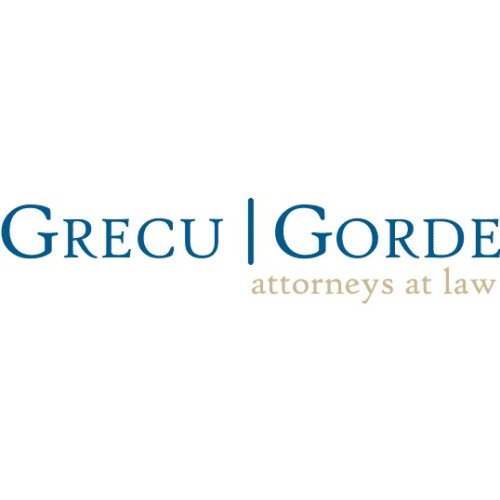Best Art & Cultural Property Law Lawyers in Cluj-Napoca
Share your needs with us, get contacted by law firms.
Free. Takes 2 min.
List of the best lawyers in Cluj-Napoca, Romania
About Art & Cultural Property Law in Cluj-Napoca, Romania
Art & Cultural Property Law in Cluj-Napoca, and Romania more broadly, involves the regulation and protection of cultural heritage, including artworks, artifacts, historical monuments, and other significant objects. The law seeks to ensure that these cultural assets are preserved, maintained, and protected from illicit activities such as illegal trade or destruction. Given Cluj-Napoca's rich cultural history and its status as a major art hub in Romania, understanding these legal frameworks is crucial for artists, collectors, and cultural institutions.
Why You May Need a Lawyer
There are several scenarios where individuals or organizations in Cluj-Napoca may require legal assistance in Art & Cultural Property Law:
- Acquiring or selling artworks, which may require contracts and provenance verification.
- Seeking legal advice on the proper handling and restitution of stolen or illegally traded cultural objects.
- Handling cases related to intellectual property rights within the arts sector.
- Addressing disputes between artists and galleries or museums.
- Ensuring compliance with government regulations in the conservation and restoration of cultural property.
Local Laws Overview
Key aspects of local laws in Cluj-Napoca relevant to Art & Cultural Property Law include:
- Protection of National Cultural Heritage Law: This includes regulations on the preservation and protection of cultural heritage sites and objects.
- Law on Museums and Public Collections: Governs the operation of museums and the management of public collections, ensuring proper curation and management practices.
- Intellectual Property Legislation: Covers copyright laws protecting artists' works from unauthorized use and reproduction.
- Regulations on Export and Import of Cultural Goods: Controls the movement of cultural items across borders, requiring permits and approvals for export and import.
Frequently Asked Questions
What is cultural property?
Cultural property refers to physical items that hold significance to a particular culture, including artworks, artifacts, buildings, and monuments.
How can I verify the authenticity of an artwork?
Authenticity of an artwork can be verified through provenance records, expert appraisals, and scientific testing where necessary.
What steps are necessary to export an artwork from Romania?
To export artwork, you must acquire the appropriate permits from the relevant Romanian authorities, ensuring compliance with national laws.
What can I do if I suspect an artwork has been stolen?
If you suspect artwork is stolen, report immediately to the local authorities and consult with a legal expert on art recovery processes.
How are artists' intellectual property rights protected in Romania?
These rights are protected under national copyright laws, which cover the creation, distribution, and use of the artist's works.
What is provenance, and why is it important?
Provenance is the record of ownership history of an artwork. It is crucial for establishing authenticity and legal ownership.
How can an artist protect their work from unauthorized reproduction?
An artist can protect their work through copyright registration and by closely monitoring unauthorized use of their creations.
Are there any laws regulating the conservation of cultural heritage sites in Romania?
Yes, Romanian law includes specific regulations that address the conservation and maintenance of national cultural heritage sites.
What can I do if my artwork is damaged at a gallery?
You should discuss potential compensation with the gallery, review your contract terms, and seek legal advice if necessary.
Do I need a permit to restore a historical building in Cluj-Napoca?
Yes, you will need to obtain the appropriate permits and approvals based on local regulations and specific restoration guidelines.
Additional Resources
For additional information and support, consider the following resources:
- National Heritage Institute in Romania: Provides guidelines and information on managing cultural heritage.
- The Ministry of Culture in Romania: Oversees cultural regulations and provides official documents and permits.
- Cluj-Napoca Bar Association: Can help connect you with qualified lawyers specializing in art and cultural property law.
Next Steps
If you require legal assistance in Art & Cultural Property Law in Cluj-Napoca, consider the following steps:
- Conduct research on local legal experts who specialize in art and cultural property law.
- Gather all relevant documents related to your case, including ownership records, contracts, and correspondence.
- Schedule a consultation with a lawyer to discuss your situation and any potential legal actions.
- Ensure clear communication with your legal representative by outlining your objectives and concerns.
Understanding the nuances of Art & Cultural Property Law requires professional advice and support, and securing a knowledgeable lawyer is essential for protecting and managing cultural assets effectively.
Lawzana helps you find the best lawyers and law firms in Cluj-Napoca through a curated and pre-screened list of qualified legal professionals. Our platform offers rankings and detailed profiles of attorneys and law firms, allowing you to compare based on practice areas, including Art & Cultural Property Law, experience, and client feedback.
Each profile includes a description of the firm's areas of practice, client reviews, team members and partners, year of establishment, spoken languages, office locations, contact information, social media presence, and any published articles or resources. Most firms on our platform speak English and are experienced in both local and international legal matters.
Get a quote from top-rated law firms in Cluj-Napoca, Romania — quickly, securely, and without unnecessary hassle.
Disclaimer:
The information provided on this page is for general informational purposes only and does not constitute legal advice. While we strive to ensure the accuracy and relevance of the content, legal information may change over time, and interpretations of the law can vary. You should always consult with a qualified legal professional for advice specific to your situation.
We disclaim all liability for actions taken or not taken based on the content of this page. If you believe any information is incorrect or outdated, please contact us, and we will review and update it where appropriate.











